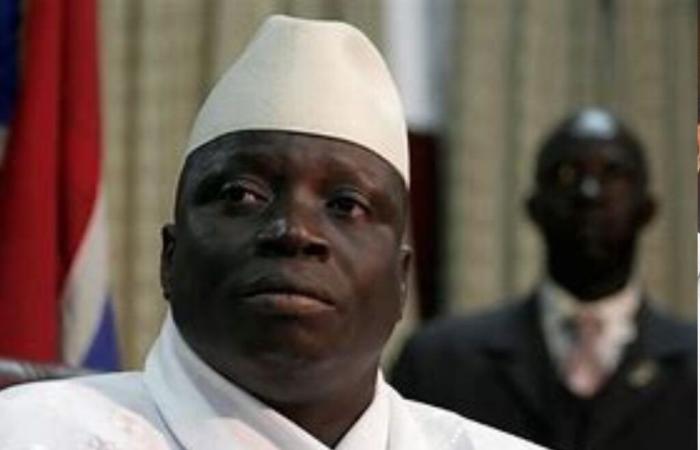ECOWAS decided this Sunday, December 15, 2024, to establish a special court to judge crimes committed in Gambia between 1994 and 2017 under the former dictator Yahya Jammeh, a refugee in Equatorial Guinea, a “historic” decision requested for a long time. by the victims of these atrocities and human rights defenders.
The heads of state and government of the Economic Community of West African States (ECOWAS), meeting on Sunday in Abuja, “took the historic decision to establish a special tribunal for The Gambia”announced the Gambian Ministry of Justice in a press release sent to AFP.
The Gambia faces the challenge of providing justice for the multitude of crimes committed during the twenty years (1994-2017) when Yahya Jammeh ruled this small West African country, landlocked in Senegal, with an iron fist. except for its maritime façade.
So far, the rare trials of crimes committed by the Jammeh regime have taken place far from The Gambia.
The ECOWAS decision “also allows the adoption of the statutes of the tribunal which will guarantee justice and the establishment of responsibilities for the serious human rights violations committed between July 1994 and January 2017” under Mr. Jammeh, indicates the ministry.
– “Historic milestone” –
“This is a historic milestone that marks an important step for The Gambia, for the region and for the international community”underlines the press release.
Among the trials that have already taken place outside the Gambia, the former Gambian Minister of the Interior Ousman Sonko, who was close to Mr. Jammeh, was sentenced in May in Switzerland to 20 years in prison for crimes against humanity.
A German court in November 2023 sentenced Bai Lowe, 48, a Gambian member of a death squad under Mr. Jammeh, to life in prison, also for crimes against humanity.
The Gambian government endorsed the recommendations of a commission in 2022 “Truth, reconciliation and reparations” which looked into the atrocities perpetrated during the Jammeh era.
Among them, the execution of 240 to 250 people by the hands of state agents, forced disappearances, rapes, acts of torture, arbitrary detentions, even the forced administration of false treatment against AIDS.
-The authorities agreed to prosecute 70 people, starting with Mr. Jammeh, who went into exile in Equatorial Guinea in January 2017 after losing the December 2016 presidential election to current President Adama Barrow.
The Gambian government announced in February 2023 that it was working with the Organization of West African States to set up a tribunal responsible for judging crimes committed during the 22-year reign of the former leader.
– The extradition equation –
“After years of delay, this agreement (for a special court) could finally allow Yahya Jammeh’s victims to access justice”declared in a text sent to AFP on Sunday Reed Brody, of the International Commission of Jurists, who worked with the victims and the Gambian authorities.
“The tribunal should now be funded and established quickly, before more survivors die”a souligné M. Brody.
“After the powerful public testimony of the truth commission, which deeply affected Gambians, there is strong expectation in The Gambia and around the world that justice will be done”he said.
He felt that he “It will be difficult for Equatorial Guinea to refuse to hand over Yahya Jammeh to a court that represents the entire West African region.”
The trial of ex-President Jammeh is still very uncertain because no extradition agreement exists between The Gambia and Equatorial Guinea, a small country in Central Africa ruled with an iron fist by Teodoro Obiang Nguema Mbasogo, who holds the world record for longevity at the head of a state for a still living leader and won the November 2022 presidential election with nearly 95% of the vote.
It is also a sensitive issue in Gambia, a country still in a phase of fragile democratic transition, where the former autocrat, although exiled, continues to exercise influence.
Current Gambian President Adama Barrow endorsed the idea of a “hybrid” court, made up of Gambian and foreign judges, in a speech delivered in February 2023. “We propose to develop a special judicial framework and create a hybrid court to judge the perpetrators of acts considered international crimes”he said.






